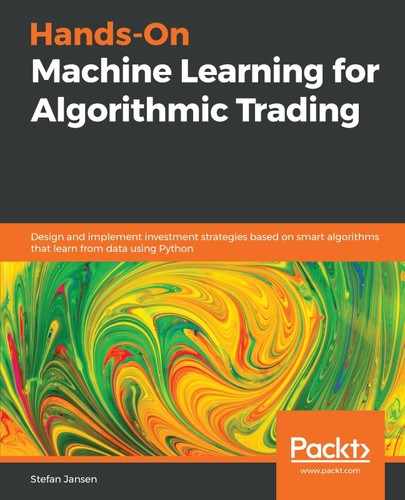Trading in financial instruments occurs in organized, mostly electronic exchanges, and over the counter. An exchange is a central marketplace where buyers and sellers meet, and buyers compete with each other for the highest bid while sellers compete for the lowest offer.
There are many exchanges and alternative trading venues across the US and abroad. The following table lists some of the larger global exchanges and the trading volumes for the 12 months concluded 03/2018 in various asset classes, including derivatives. Typically, a minority of financial instruments accounts for most trading:
|
|
Stocks |
|||||
|
Exchange |
Market Cap (USD mn) |
# Listed Companies |
Volume / Day (USD mn) |
# Shares / Day ('000) |
# Options / Day ('000) |
|
|
NYSE |
23,138,626 |
2,294 |
78,410 |
6,122 |
1,546 |
|
|
Nasdaq-US |
10,375,718 |
2,968 |
65,026 |
7,131 |
2,609 |
|
|
Japan Exchange Group Inc. |
6,287,739 |
3,618 |
28,397 |
3,361 |
1 |
|
|
Shanghai Stock Exchange |
5,022,691 |
1,421 |
34,736 |
9,801 |
|
|
|
Euronext |
4,649,073 |
1,240 |
9,410 |
836 |
304 |
|
|
Hong Kong Exchanges and Clearing |
4,443,082 |
2,186 |
12,031 |
1,174 |
516 |
|
|
LSE Group |
3,986,413 |
2,622 |
10,398 |
1,011 |
|
|
|
Shenzhen Stock Exchange |
3,547,312 |
2,110 |
40,244 |
14,443 |
|
|
|
Deutsche Boerse AG |
2,339,092 |
506 |
7,825 |
475 |
|
|
|
BSE India Limited |
2,298,179 |
5,439 |
602 |
1,105 |
|
|
|
National Stock Exchange of India Limited |
2,273,286 |
1,952 |
5,092 |
10,355 |
|
|
|
BATS Global Markets – US |
|
|
|
|
1,243 |
|
|
Chicago Board Options Exchange |
|
|
|
|
1,811 |
|
|
International Securities Exchange |
|
|
|
|
1,204 |
|
Exchanges may rely on bilateral trading or order-driven systems, where buy and sell orders are matched according to certain rules. Price formation may occur through auctions, such as in the New York Stock Exchange (NYSE), where the highest bid and lowest offer are matched, or through dealers who buy from sellers and sell to buyers.
Many exchanges use intermediaries that provide liquidity, that is, the ability to trade, by making markets in certain securities. The NYSE, for example, usually has a single designated market maker who ensures orderly trading for each security, while the National Association of Securities Dealers Automated Quotations (Nasdaq) has several. Intermediaries can act as dealers that trade as principals on their own behalf, or brokers that trade as agents on behalf of others.
Exchanges used to be member-owned but have often moved to corporate ownership as market reforms have increased competition. The NYSE dates back to 1792, whereas the Nasdaq started 1971 as the world's first electronic stock market and took over most stock trades that had been executed OTC. In US equity markets alone, trading is fragmented across 13 exchanges and over 40 alternative trading venues, each reporting trades to the consolidated tape, but at different latencies.
